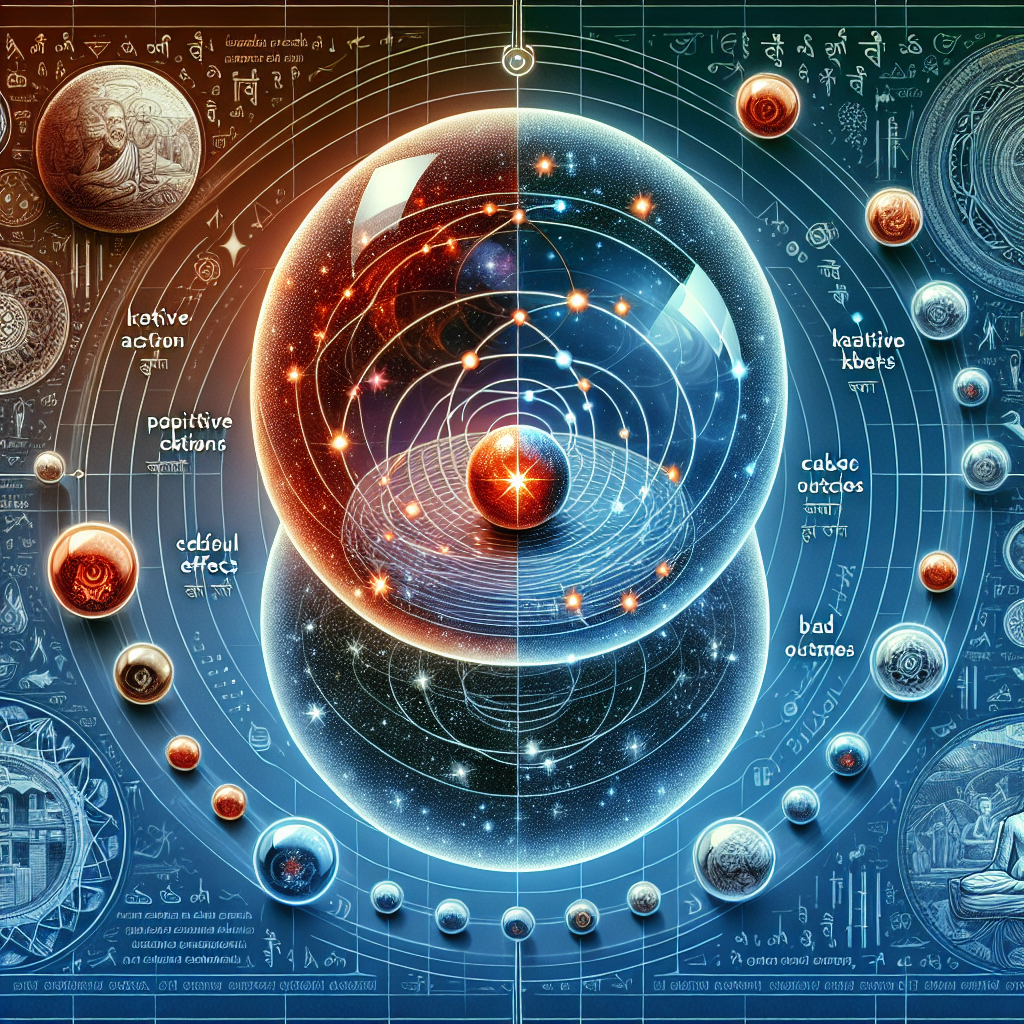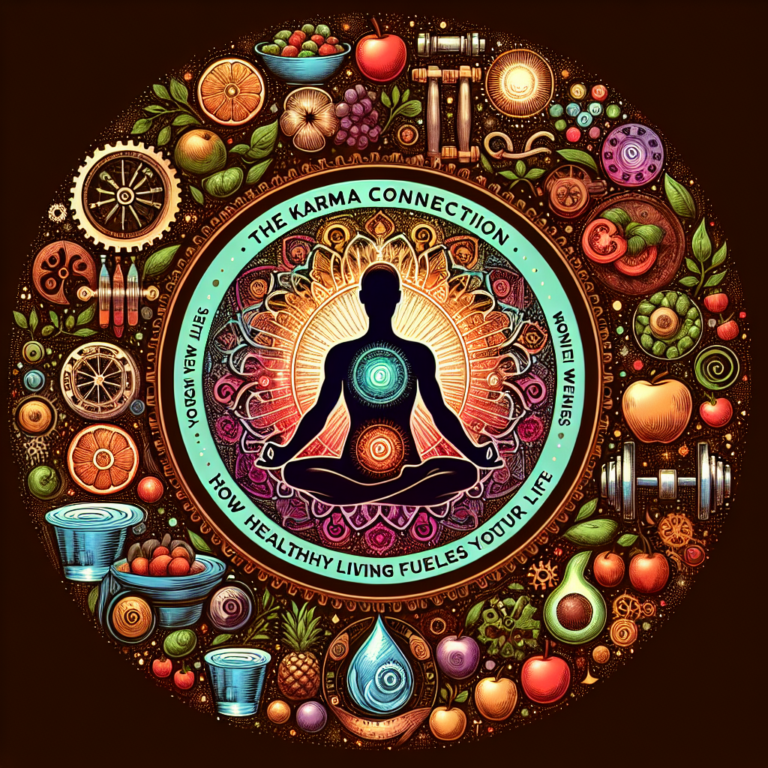Karma is a term that is often used casually to describe the idea that what goes around comes around. Rooted in philosophical and spiritual traditions, particularly in Hinduism and Buddhism, karma encompasses the principle of cause and effect, suggesting that every action has consequences that shape an individual’s future experiences. In contemporary discourse, karma has transitioned from its spiritual origins to a broader, more secular understanding of moral justice and fate.
The Origins of Karma
Before diving into the scientific inquiry into karma, it is essential to grasp its historical and philosophical roots. The concept of karma arises from ancient Indian philosophy and is a core tenet of many Eastern religions. The term itself comes from the Sanskrit word ‘karman,’ meaning “act” or “deed.” The foundational idea behind karma posits that every action, whether physical, verbal, or mental, produces an effect in the universe that can impact the individual in this life or future ones.
Philosophical Perspectives
Karma is not merely a theological concept; it also incorporates a moral dimension. It implies a system of moral cause and effect that influences an individual’s character and experiences. In Buddhism, karma combines intention with action. The phrase ‘intention is the key’ suggests that it is not merely the action itself but the motivation behind the action that dictates the karmic consequences one faces. This inclusion of intention is central to understanding the nuanced nature of karma.
The Scientific Approach to Karma
When discussing karma from a scientific standpoint, it is essential to explore the principles of cause and effect, both in philosophy and empirical observation. Science aims to understand the world through observable phenomena and laws that dictate relationships between various elements in existence.
Cause and Effect in Physics
One of the most fundamental principles in science is cause and effect. In physics, every action results in an equal and opposite reaction, a concept largely articulated in Newton’s Third Law of Motion. This principle demonstrates how actions can lead to specific outcomes—essentially modeling a simplified version of karma. For instance, if an object exerts force on another object, the second object reciprocates that force in equal measure. Similarly, in the context of human interactions, positive actions may lead to positively reciprocal outcomes.
Systems Theory
Systems theory explores interconnected components within a larger framework. In this context, individual actions can be seen as variables that influence the overall system—similar to karma. Each decision we make impacts the larger social, ecological, and economic systems in which we live. For example, charitable actions can create ripples of goodwill within a community, ultimately leading to a more supportive social environment.
Psychological Perspectives on Karma
The psychological implications of karma offer another layer of understanding. Research in psychology suggests that individuals often internalize their understanding of karma, influencing their decisions and behavior. This phenomenon can be observed in the concept of cognitive dissonance, where one’s beliefs and actions must align to avoid mental discomfort. Individuals who believe in karma may feel a moral obligation to act kindly toward others, driven by the understanding that their actions may return to them in a positive or negative way.
The Role of Empathy and Altruism
The psychology of karma heavily rests on principles of empathy and altruism. Studies indicate that prosocial behavior—acts intended to benefit others—can lead to increased levels of happiness and well-being for the giver. This notion aligns with the idea of karma, as positive deeds lead to a more fulfilling life, creating a feedback loop of goodness. Moreover, neuroscientific research has shown that altruistic behavior activates reward centers in the brain, highlighting a biological basis for the ‘feel good’ aspect of karma.
Karma in a Social Context
Social dynamics also play a crucial role in understanding karma. The notion of social capital—the networks of relationships among people—illustrates how acting with integrity and support can lead to reciprocal actions that benefit the entire community. This creates a circular effect where trust and cooperation thrive, similar to the karmic cycle of cause and effect.
Restorative Justice
Restorative justice practices resonate with principles derived from karma, emphasizing healing rather than punishment. Instead of focusing solely on the negative consequences of actions, restorative justice seeks to understand the underlying causes and support recovery for all parties involved. This approach encourages personal accountability and empathy, aligning closely with the karmic ideal that our actions have profound effects on ourselves and others.
Scientific Critiques of Karma
Despite its appeal, karma is often critiqued from a scientific perspective. Critics argue that the principle lacks empirical support, as it relies heavily on retrospective interpretations of events. In many cases, individuals may attribute personal circumstances to their past actions, but this does not always account for the vast complexity and randomness of life experiences.
Randomness and Chaos Theory
Chaos theory posits that within deterministic systems, small changes in initial conditions can lead to vastly different outcomes. This concept challenges the straightforward notion of karma, as it suggests that randomness plays an undeniable role in determining life outcomes. Accidents, unforeseen circumstances, and factors beyond one’s control can disrupt any assumed correlation between actions and consequences.
The Role of Cognitive Biases
Cognitive biases also influence how we perceive karma. The hindsight bias often leads individuals to think that they “knew it all along” when events unfold—creating illusory connections where none exist. Confirmation bias can result in people selectively recalling events that support their belief in karmic justice, while ignoring instances that contradict it. These biases can skew our understanding of the supposed cause-and-effect relationships inherent in karma.
Conclusion
The concept of karma invites a deep exploration of cause and effect, interweaving philosophical, psychological, and scientific perspectives. While the spiritual understanding of karma emphasizes moral accountability and consequences across lifetimes, a scientific lens emphasizes observable relationships and the interplay of various systemic elements. Ultimately, whether viewed through a religious, philosophical, or scientific framework, karma serves as a powerful reminder of the interconnected nature of our actions and their effects on the world around us.
FAQs
What is karma in simple terms?
Karma refers to the concept that our actions, whether good or bad, have consequences that influence our future experiences. It is often summarized by the phrase “what goes around comes around.”
Can karma affect us in this lifetime?
Yes, many believe that karma manifests in this lifetime, often resulting in immediate consequences to actions. Acts of kindness may lead to positive experiences, while negative actions may lead to unfavorable outcomes.
Is there scientific evidence supporting karma?
While scientific studies do support the notion that positive actions can lead to increased happiness and social cohesion, karma as a metaphysical concept lacks empirical evidence. However, the principles of cause and effect can be observed in various scientific disciplines.
How can understanding karma benefit us?
Understanding karma encourages individuals to act with kindness and consideration for others. It promotes self-reflection, accountability, and a sense of community, fostering relationships that contribute to personal and collective well-being.
Does karma apply to everyone?
Yes, the principle of karma is universally applicable, suggesting that all individuals are affected by the consequences of their actions, though interpretations may vary based on cultural and personal beliefs.
https://open.ai/e9eaced2a0af257fc0527b85bd19c004 , It seems like your message was cut off. Could you please provide more details or clarify what you’re looking for in your prompt? Whether it’s a creative writing prompt, a question, or something else, I’m here to help!, #Science #Karma #Deep #Dive #Effect, #Science #Karma #Deep #Dive #Effect, 1734009799, the-science-behind-karma-a-deep-dive-into-cause-and-effect





